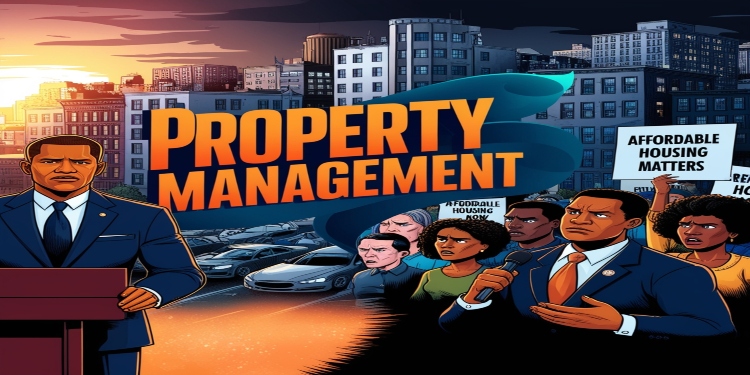Before the housing crisis, both political figures and citizens ignored property management issues. Real estate management collected rents, kept buildings in good shape, and checked tenants for suitability. The US housing crisis made property management essential to discuss in political talks. The political world now questions how property managers run the housing market because affordable homes remain difficult to find across American cities.
Community discussions about rent control now touch on both property management operations and housing policy decisions that reflect who manages properties and what they should manage. People in politics and activism, as well as normal tenants, observe that property operations connect to both private life and public policy.
The Housing Crisis at a Glance
The United States has not been as unaffordable for homeowners since the 1980s. Many US residents experience rental difficulty because they pay over 30% of their income for housing. These cities house more than half of their residents, who pay over 50% of their income toward rent. Home prices have jumped dramatically, mortgage rates now exceed 7%, and we have almost no available homes at affordable prices.
The chance for quality, affordable housing continues to fade for people who rent homes and want to become homeowners. Because of the current housing situation, people view housing as central to local and national political decision-making. Elected officials must now explain how housing policies and property management can help solve the present crisis.
Corporate Landlords and Institutional Ownership
People focus strongly on the political aspect of corporate landlords, who buy many residential properties as hedge funds, REITs, and other big companies.
These business groups hire property managers to manage their real estate investments. The result? The new corporate owners of rental properties display no commitment to local neighborhood safety and quality of life. Property owners suffer from higher rent prices and service fees and receive poor treatment from these modern landlords.
Sunbelt states, particularly Texas, Arizona, and Florida, now attract substantial investment from outside states. This new capital pushes local authorities to create regulations for property management companies to follow.
How Property Management Became Part of the Conversation
The answer lies in the growing perception that how properties are managed can either help or worsen the housing crisis. Different regions need different approaches; property management in Santa Clarita will differ from management in New Jersey. Property management companies influence rental prices, tenant experiences, housing quality, and community stability. As such, they’re no longer viewed as neutral players. In many regions, they’re being evaluated, and sometimes blamed, for their role in issues like
- Rising rents
- Eviction practices
- Gentrification
- Neglected maintenance
- Tenant harassment or neglect
- Algorithmic rent pricing
Large property management companies, especially those managing thousands of units, have been accused of using software to inflate rental prices artificially. Some use platforms that track local rental trends and adjust prices based not on a unit’s value but on what the market can tolerate. This practice has drawn criticism from housing advocates and even the White House.
In fact, a 2024 report by the Biden administration claimed that such software led to billions in inflated rent costs nationwide. Property management is no longer just a service—it’s a lever in the broader affordability equation.
Rent Control, Tenant Rights, and Local Politics
Local government branches take action by exploring rent control laws and tenant security rules because housing expenses and evictions keep rising. What organization must implement or block these proposed rules? Property managers.
Property managers must follow rules that extend eviction notice periods to a specific percentage of rent increases and provide tenant relocation support. These official rules add to managers’ workloads but show a developing idea that people deserve decent homes as basic rights.
The property management business fights back by saying these rules decrease their profits and block investments, making it harder for landlords to join the market. According to tenant supporters, these safeguards keep low-income residents from being forced to leave their communities.
Maintenance, Neglect, and Code Enforcement
Property maintenance standards and building security measures form another political connection in this industry. Cities experience major problems when their residents live in poor housing. Tenants in low-income housing frequently report problems with mold, pests, broken plumbing, and heating issues.
The property manager usually receives blame when living problems remain unresolved. Local authorities take action by strengthening regulations and inspections while taking control of poorly run properties.
Political leaders now understand that improving housing standards ranks equally with constructing additional units in their housing policy approach. The need for better regulation pushes management firms to improve their services and creates political action for improved housing standards.
Final Thoughts
Property management companies now face strong political scrutiny because they play a major part in shaping America’s housing challenges. Property managers now stand at the center of clashes between different groups about who should have access to safe shelter.
Property managers face a critical moment in transforming from contributing to housing issues to making real changes in our current crisis.










































































